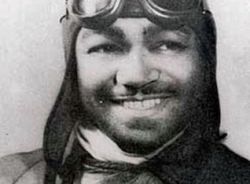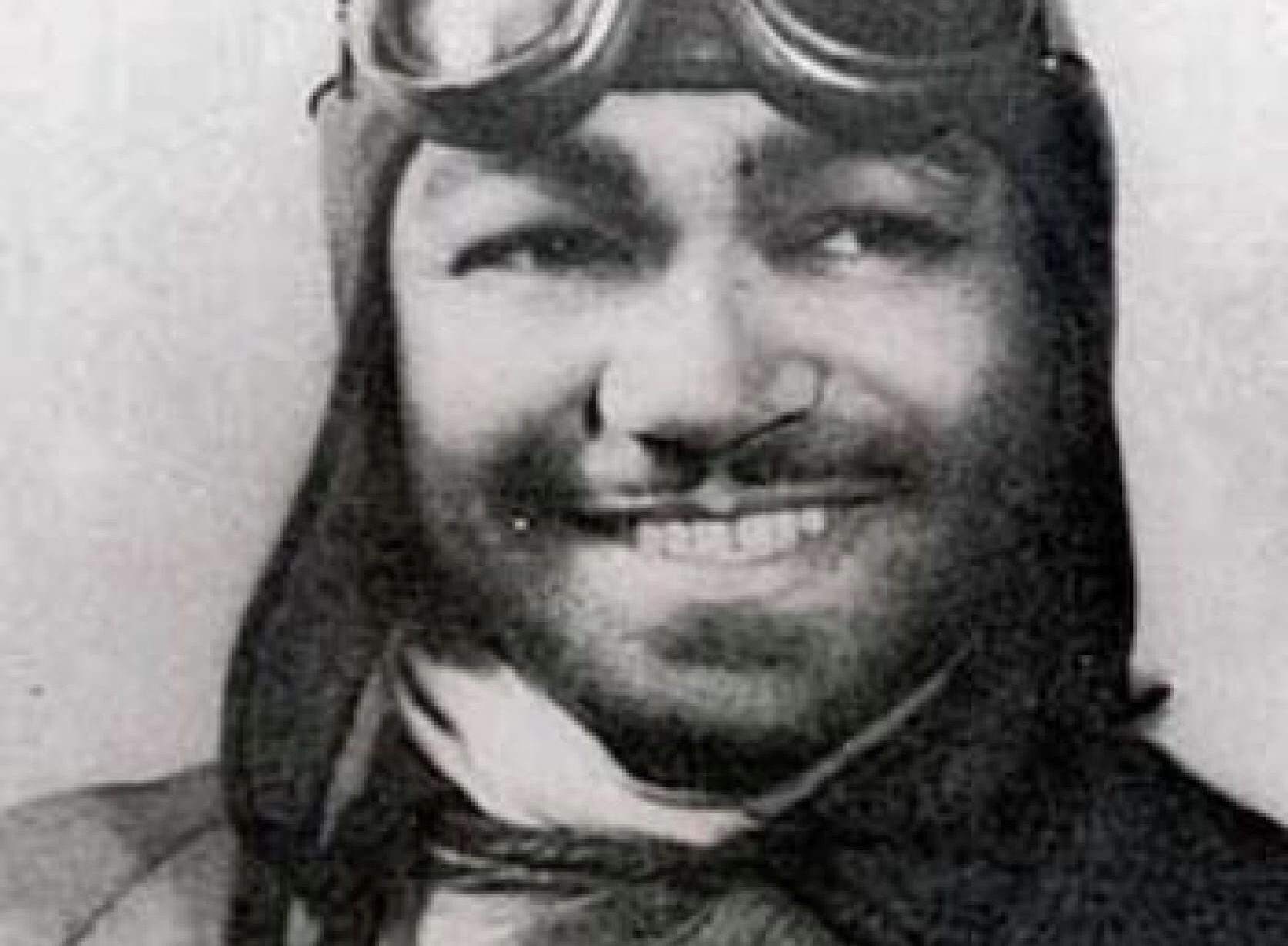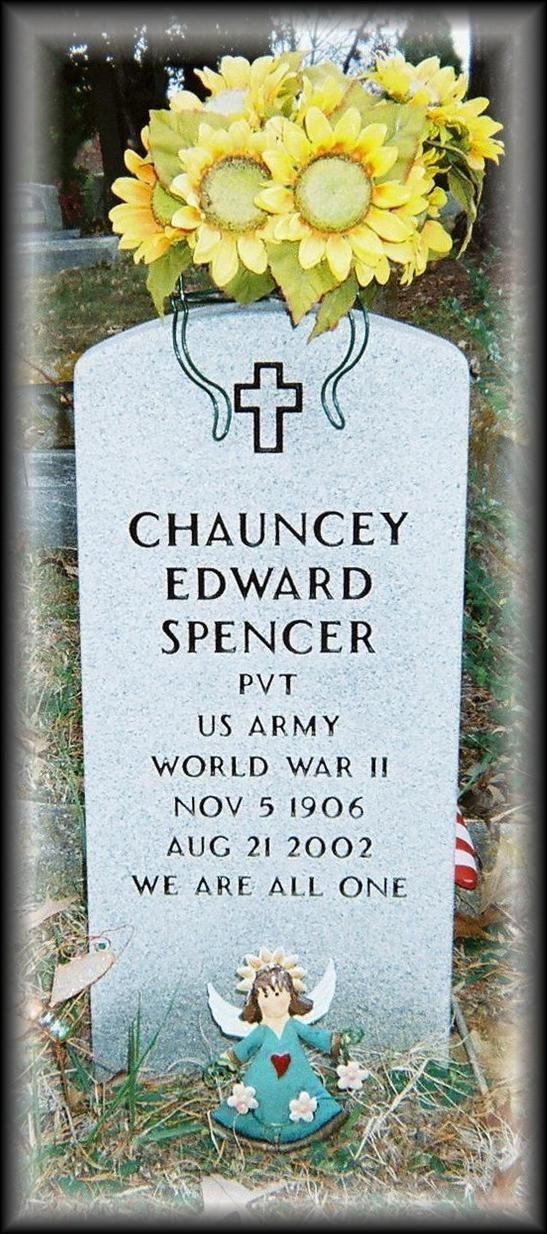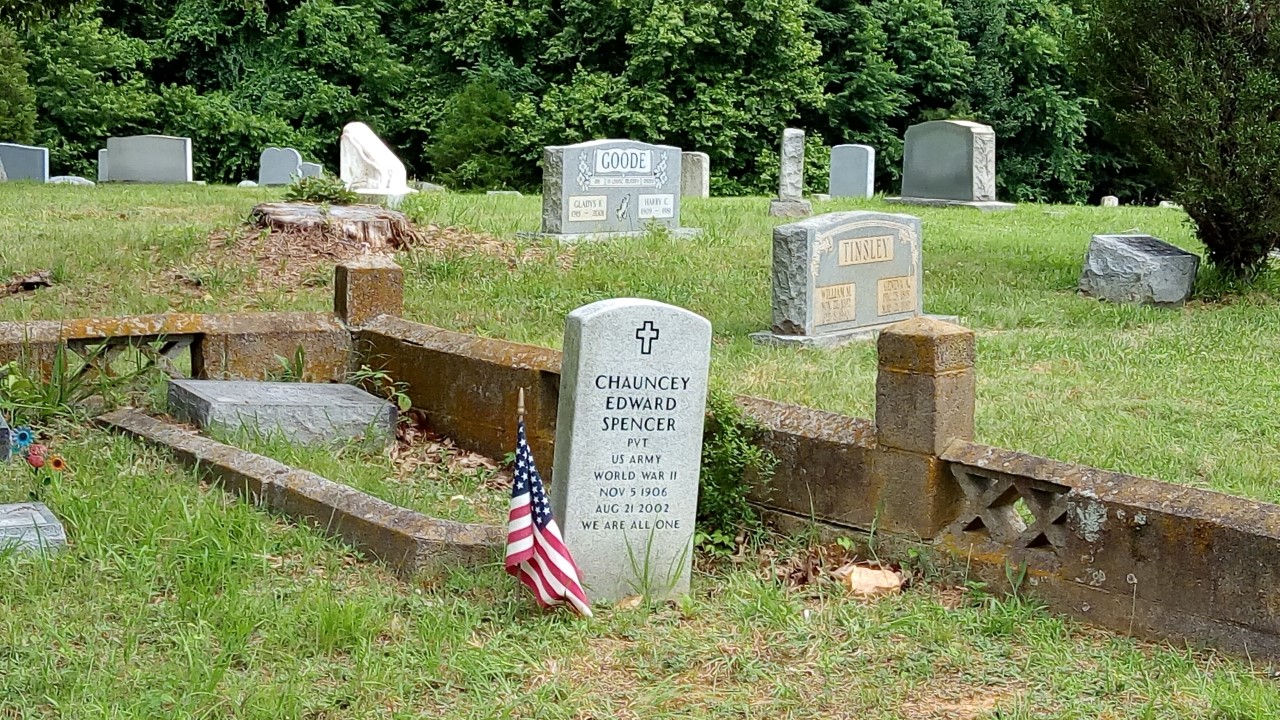Private, U.S. Army - World War II
REF: http://www.aaregistry.org/historic_events/view/airman-chauncey-spencer-born
Chauncey Spencer was born on this date in 1906. He was an African American pilot and educator.
He was born in Lynchburg, VA, one of three children of Edward Spencer and noted Harlem Renaissance poet Anne Spencer. One of the most respected families in Lynchburg, visitors to the Spencer home included George Washington Carver, Paul Robeson, James Weldon Johnson, Walter White, Clarence Muse, Dean Pickens, Adam Clayton Powell, Langston Hughes, Thurgood Marshall, and W.E.B. Dubois.
At the age of 11, he fell in love with flying, but after graduating from college, no aviation school in Virginia would admit him because of his color. Spencer moved to Chicago in 1934 and joined with a group of African American aviators in organizing the National Airmen Association of America (NAAA). Working for $16-a-week as a kitchen helper, he paid $11 an hour for flying lessons.
In May 1939, he and fellow aviator Dale Lawrence White, also an NAAA member, flew a rented Lincoln-Paige biplane with only two flight instruments on a ten-city tour that started in Chicago and ended in Washington, DC. Realizing that war in Europe was imminent, they demonstrated the aviation abilities of Negroes and lobbied Congress to include of people of color in the Civilian Pilot Training Program for the Army Air Corps. Their flight drew national attention and proved that African Americans could fly an airplane, contrary to the beliefs and opinions of most Army Air Corps and government leaders.
They met with Harry Truman and others in Congress, convincing them to support their cause. Later, while employed by the Army, Spencer worked with Judge William H. Hastie for fair treatment of African American air cadets being trained at Tuskegee Institute in Alabama and other air bases during World War II. He encountered considerable resistance from whites as well as blacks as the Civilian Personnel Employee Relations Officer at Wright-Patterson Air Force Base in Ohio. Despite this, he persisted and made steady progress towards integration of the Air Force. In 1948, Spencer received the Exceptional Civilian Service Award for service during World War II, the highest honor the Air Force could bestow upon a civilian.
In 1953, the United States Air Force referred to his role in the integration of the military as "unique though strangely unsung." However, his refusal to drag his feet on integration created resentment among highly-placed officials who wished to see integration fail. Consequently, in 1953, Spencer was charged with disloyalty and accused of being a Communist. He was relieved of his position and his family suffered great humiliation and economic deprivation. In June 1954 the Air Force cleared him of all charges. Spencer and his family would never fully recover from this ordeal.
Despite ill-treatment, he continued to maintain his belief in the goodness and strength of mankind and America until his death on August 21, 2002.
Private, U.S. Army - World War II
REF: http://www.aaregistry.org/historic_events/view/airman-chauncey-spencer-born
Chauncey Spencer was born on this date in 1906. He was an African American pilot and educator.
He was born in Lynchburg, VA, one of three children of Edward Spencer and noted Harlem Renaissance poet Anne Spencer. One of the most respected families in Lynchburg, visitors to the Spencer home included George Washington Carver, Paul Robeson, James Weldon Johnson, Walter White, Clarence Muse, Dean Pickens, Adam Clayton Powell, Langston Hughes, Thurgood Marshall, and W.E.B. Dubois.
At the age of 11, he fell in love with flying, but after graduating from college, no aviation school in Virginia would admit him because of his color. Spencer moved to Chicago in 1934 and joined with a group of African American aviators in organizing the National Airmen Association of America (NAAA). Working for $16-a-week as a kitchen helper, he paid $11 an hour for flying lessons.
In May 1939, he and fellow aviator Dale Lawrence White, also an NAAA member, flew a rented Lincoln-Paige biplane with only two flight instruments on a ten-city tour that started in Chicago and ended in Washington, DC. Realizing that war in Europe was imminent, they demonstrated the aviation abilities of Negroes and lobbied Congress to include of people of color in the Civilian Pilot Training Program for the Army Air Corps. Their flight drew national attention and proved that African Americans could fly an airplane, contrary to the beliefs and opinions of most Army Air Corps and government leaders.
They met with Harry Truman and others in Congress, convincing them to support their cause. Later, while employed by the Army, Spencer worked with Judge William H. Hastie for fair treatment of African American air cadets being trained at Tuskegee Institute in Alabama and other air bases during World War II. He encountered considerable resistance from whites as well as blacks as the Civilian Personnel Employee Relations Officer at Wright-Patterson Air Force Base in Ohio. Despite this, he persisted and made steady progress towards integration of the Air Force. In 1948, Spencer received the Exceptional Civilian Service Award for service during World War II, the highest honor the Air Force could bestow upon a civilian.
In 1953, the United States Air Force referred to his role in the integration of the military as "unique though strangely unsung." However, his refusal to drag his feet on integration created resentment among highly-placed officials who wished to see integration fail. Consequently, in 1953, Spencer was charged with disloyalty and accused of being a Communist. He was relieved of his position and his family suffered great humiliation and economic deprivation. In June 1954 the Air Force cleared him of all charges. Spencer and his family would never fully recover from this ordeal.
Despite ill-treatment, he continued to maintain his belief in the goodness and strength of mankind and America until his death on August 21, 2002.
Family Members
Sponsored by Ancestry
Advertisement
Advertisement













